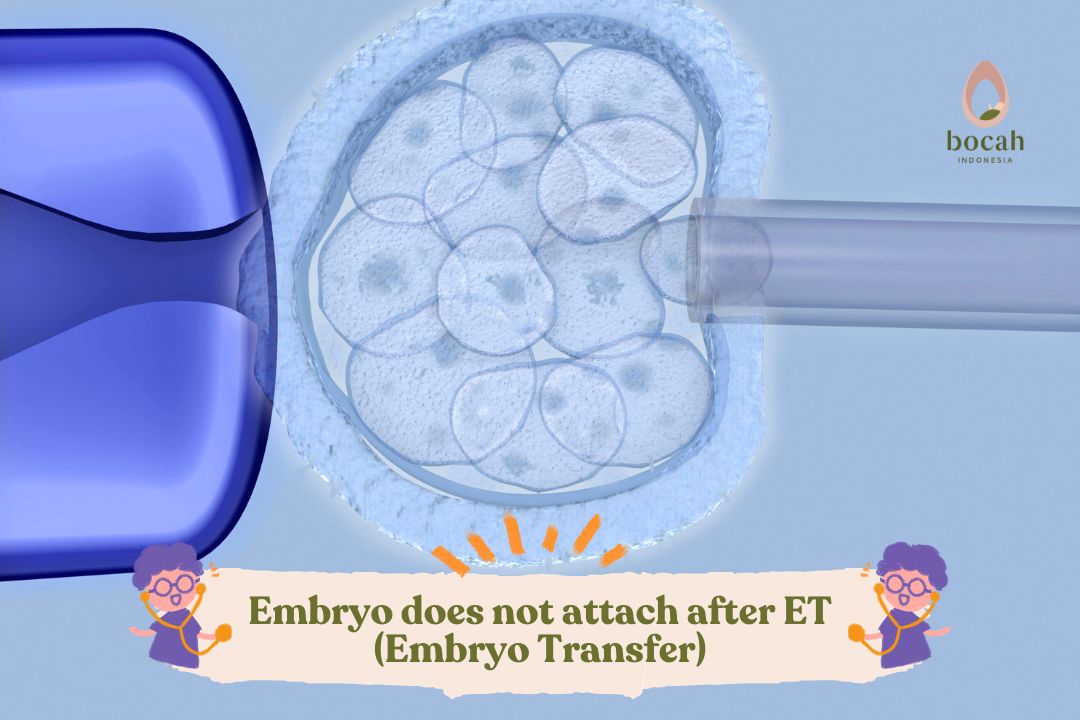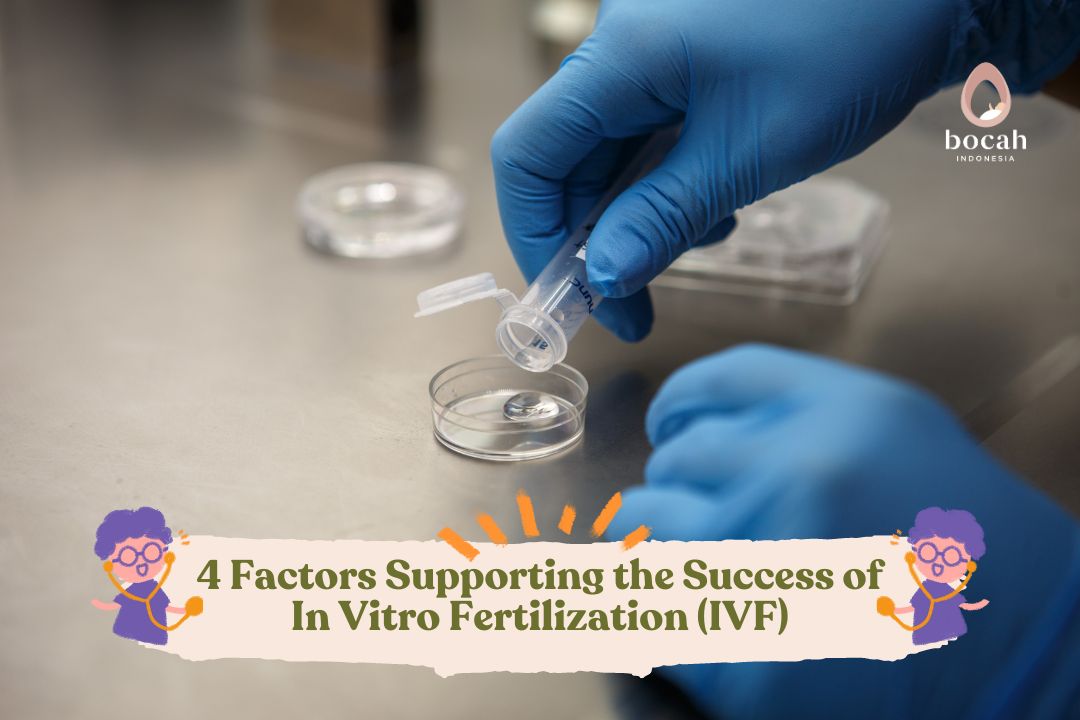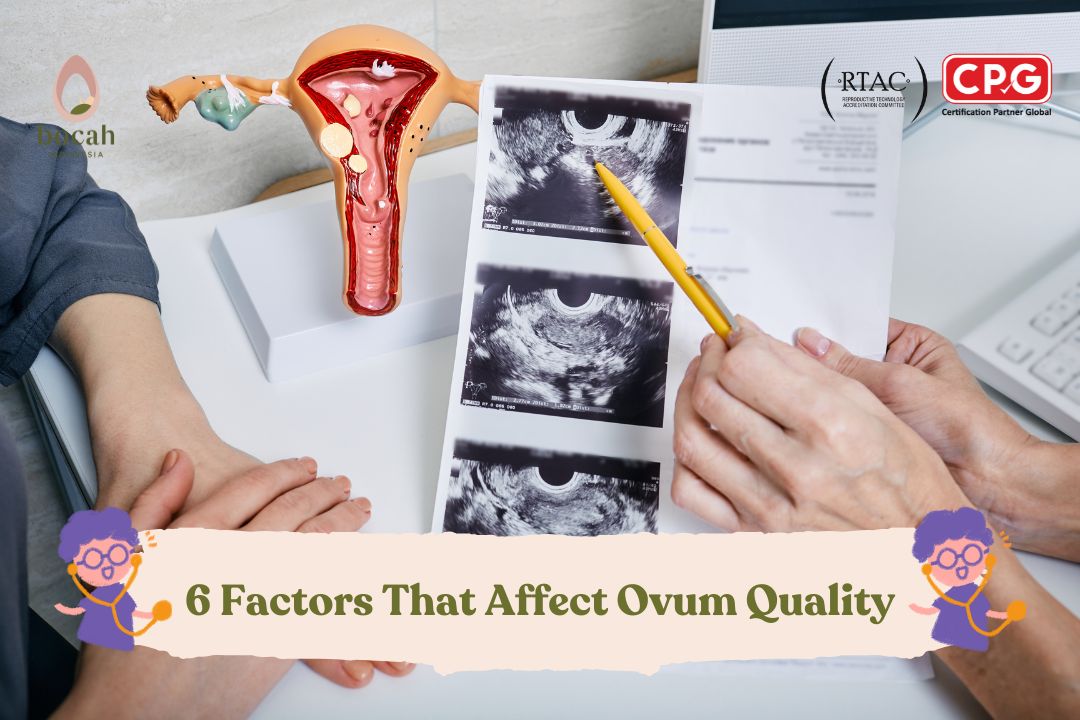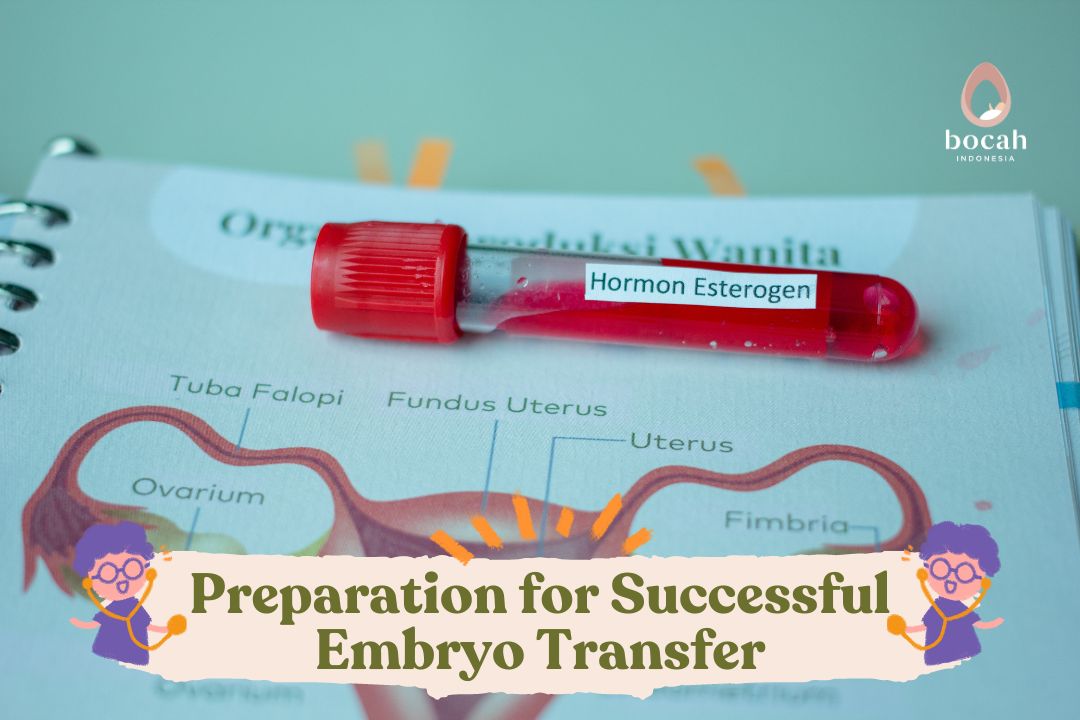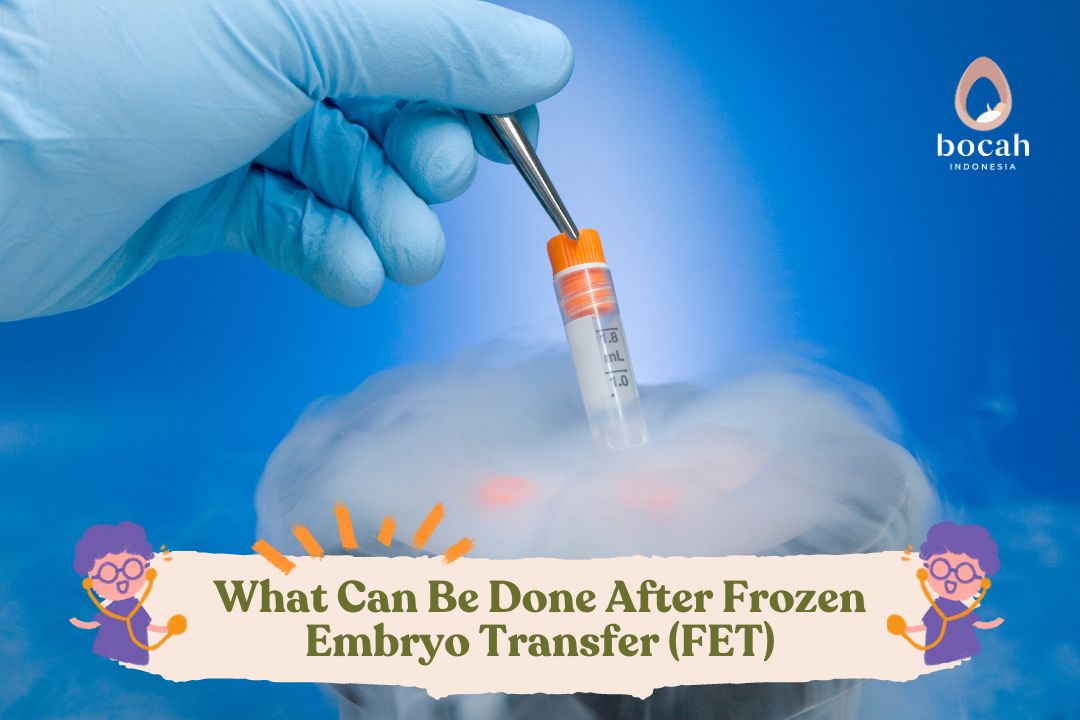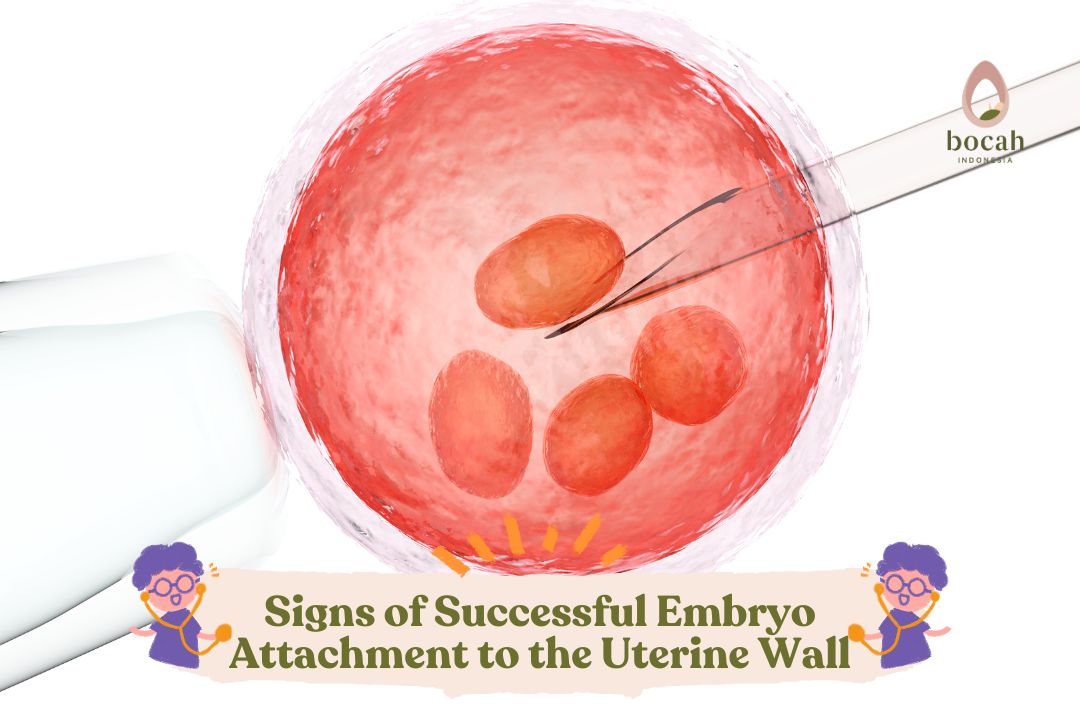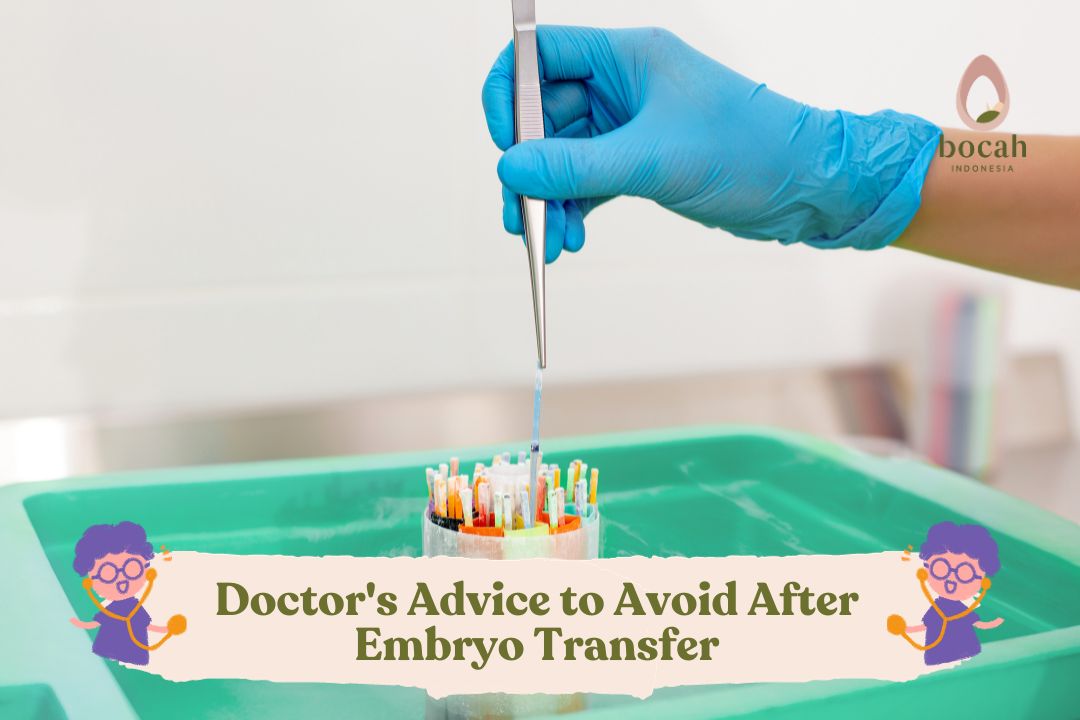5 Factors that Influence Embryo Implantation
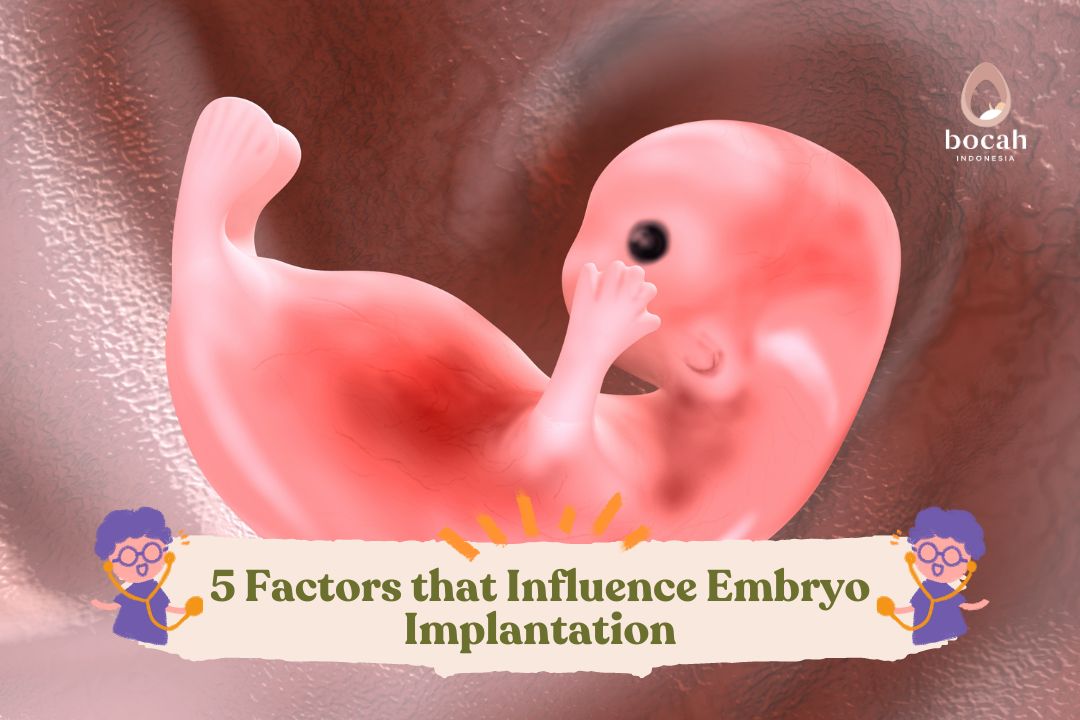
Several factors can influence the process of embryo implantation in the uterine wall, thereby affecting the chances of pregnancy.
One of the crucial stages that plays an important role in the success rate of a pregnancy is implantation. Implantation is the process of the embryo attaching and embedding itself in the uterine wall.
According to research published in the journal Human Reproduction Update, when a woman reaches her peak fertility, she only has about a 30% chance of getting pregnant. This is marked by safe implantation and the presence of a fetal heartbeat.
However, scientists estimate that around 30% of embryos fail to implant in the uterine wall. So, what are the factors that influence the implantation of the embryo in the uterine wall? Let’s find out through the review below, Mom!
Factors Influencing Embryo Implantation in the Uterine Wall
Usually, implantation occurs around 6-12 days after ovulation, which is the fertile period when the ovary releases a mature egg to be fertilized by sperm.
Tanya Mincah tentang Promil?
The embryo is then formed from the fertilized egg. The embryo then gradually attaches to the uterine wall until it is finally embedded in the innermost layer of the uterine wall, the endometrium.
During the implantation phase, there are four main factors that are believed to influence the attachment of the embryo to the uterine wall of the mother, including:
1. Embryo Quality
The health quality of the embryo affects the success rate of implantation. Unfortunately, a very large number of embryos are unhealthy due to chromosomal abnormalities. Conditions of abnormal number and composition of chromosomes carrying DNA are called aneuploidy. Research in the International Journal of Reproductive Bio Medicine found that around 63% of cases of aneuploidy occur in women under the age of 37.
Embryos with chromosomal abnormalities usually have difficulty implanting in the uterine wall. This condition becomes a cause of early miscarriage. Chromosomal abnormalities in the embryo also cause young couples in their 20s to need an average of 3-4 months to get pregnant. Meanwhile, women in their 30s and 40s with aneuploidy have a longer time frame to get pregnant.
2. Uterine Condition and Endometrium
The next factor that influences the embryo implantation process is the health of the uterus. The uterus must have a normal physical shape and be free of conditions that can interfere with implantation.
The success rate of embryo implantation is also influenced by the thickness of the endometrial layer. This innermost layer of the uterine wall should ideally have a minimum thickness of 7-8 mm to increase the chances of pregnancy.
In addition, endometrial receptivity, or the ability of the endometrium to accept the embryo, is a factor that also influences the success of implantation. Most women can accept implantation only within a 3-6 day period.
During this time frame, the embryo must be able to enter the endometrium until it is embedded in the uterus and grow into a fetus. If the endometrium has poor receptivity and a thin uterine wall, the chances of implantation occurring are even smaller.
3 Hormonal Changes
The increase in reproductive hormone levels facilitates the process of embryo implantation on the uterine wall, leading to the initial stages of pregnancy. Progesterone is the most influential hormone in this regard.
Implantation usually occurs concurrently with the peak increase in progesterone levels. This increase in reproductive hormone levels can thicken the endometrium, making it more ready for the embryo to attach.
A study in the journal Fertility and Sterility revealed that women whose progesterone levels remain high after the implantation period have a five-fold greater chance of giving birth compared to women with low progesterone levels.
In addition to progesterone, the Human Chorionic Gonadotropin (hCG) hormone also plays a key role in the process of embryo implantation in the uterine wall. This hormone is commonly used for early pregnancy detection.
A small increase in hCG levels during the implantation process signals the body to stop menstruation. This is due to the ongoing pregnancy process.
4 Immune System
Approximately 50% of the embryo’s genetic material comes from the mother, while the other 50% comes from the father.
This genetic composition can cause the mother’s immune system to feel threatened, perceiving the embryo as a foreign substance, much like a virus. To defend itself, the immune system will typically attack this foreign substance.
However, once the embryo implantation process in the uterine wall is successful, the mother’s immune system will undergo several adjustments. It will adapt itself to tolerate the presence of the embryo, allowing the future baby to survive. The mother’s immune system will support the baby’s growth throughout the pregnancy and childbirth.
Despite this, these adjustments also weaken the mother’s immune system. As a result, pregnant women are more susceptible to infections.
5. Lifestyle
Lifestyle is also a factor that influences the success rate of embryo implantation in the uterine wall. Habits like frequent smoking and excessive alcohol consumption can reduce the chances of successful implantation.
Excessive smoking can affect the quality of the embryo, reducing its ability to attach to the uterine wall. Meanwhile, excessive alcohol consumption can increase stress on the hormone signaling pathways and nutrition. The effect can reduce the chances of normal implantation.
Another factor that can influence implantation is obesity. Being overweight can have a negative impact on the quality of the eggs, gene expression, hormonal balance, and the mother’s immune response.
Wow, it turns out there are many factors that can affect the attachment of the embryo to the uterine wall, which can impact the chances of pregnancy.
For mothers who are currently trying to get pregnant, don’t be discouraged. Keep focusing on the factors that can be controlled. Maintain a healthy lifestyle from the beginning so that it can have a positive impact on the implantation process later on, dear mothers.
Keep following the latest information about pregnancy only at Bocah Indonesia!
This article has been medically reviewed by Dr. Chitra Fatimah.
Source:
- Yu Kizawa. Ovaterra by Fertility Neutraceuticals. Embryo Implantation: What Affects Implantation? 2022
- N S Macklon, J P M Geraedts, B C J M Fauser. Human Reproduction Update. Conception to ongoing pregnancy: the ‘black box’ of early pregnancy loss. 2002
- Farzaneh Fesahat, M.Sc., Fatemeh Montazeri, M.Sc., Mohammad Hasan Sheikhha, M.D., Ph.D., Hojjatollah Saeedi, Ph.D., Razieh Dehghani Firouzabadi, M.D., and Seyed Mehdi Kalantar, Ph.D. International Journal of Reproductive BioMedicine. Frequency of chromosomal aneuploidy in high quality embryos from young couples using preimplantation genetic screening. 2017
- D Bernstein, H B Frishman, S Levin, S Schwartz. Fertility and Sterility. The value of urinary pregnanediol estimation for monitoring early pregnancies. 1978


